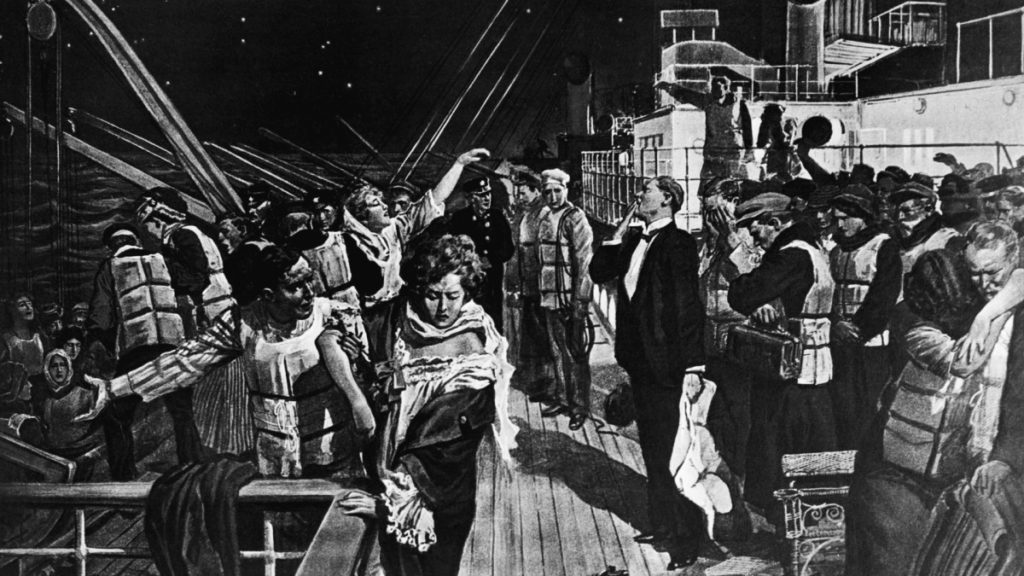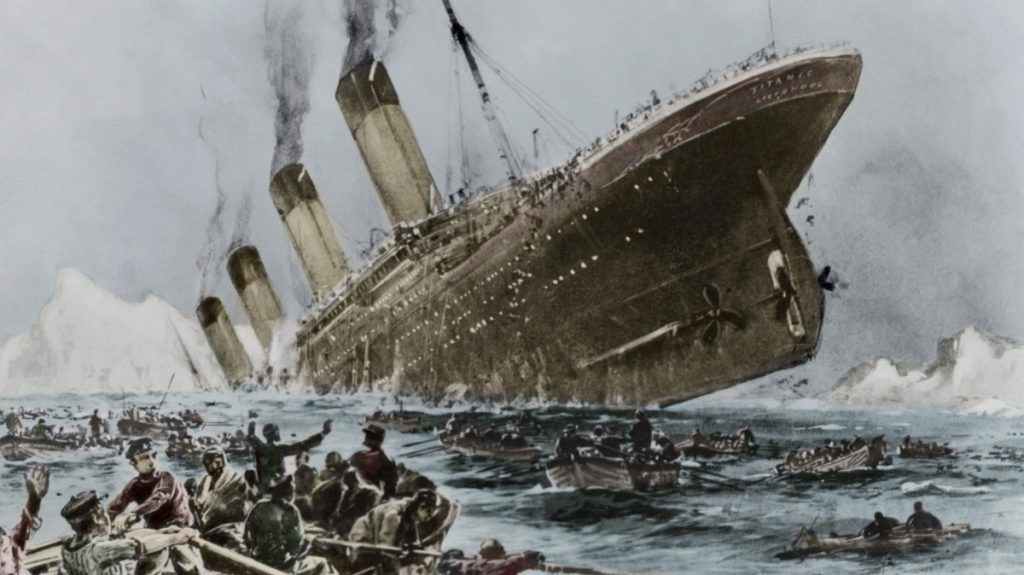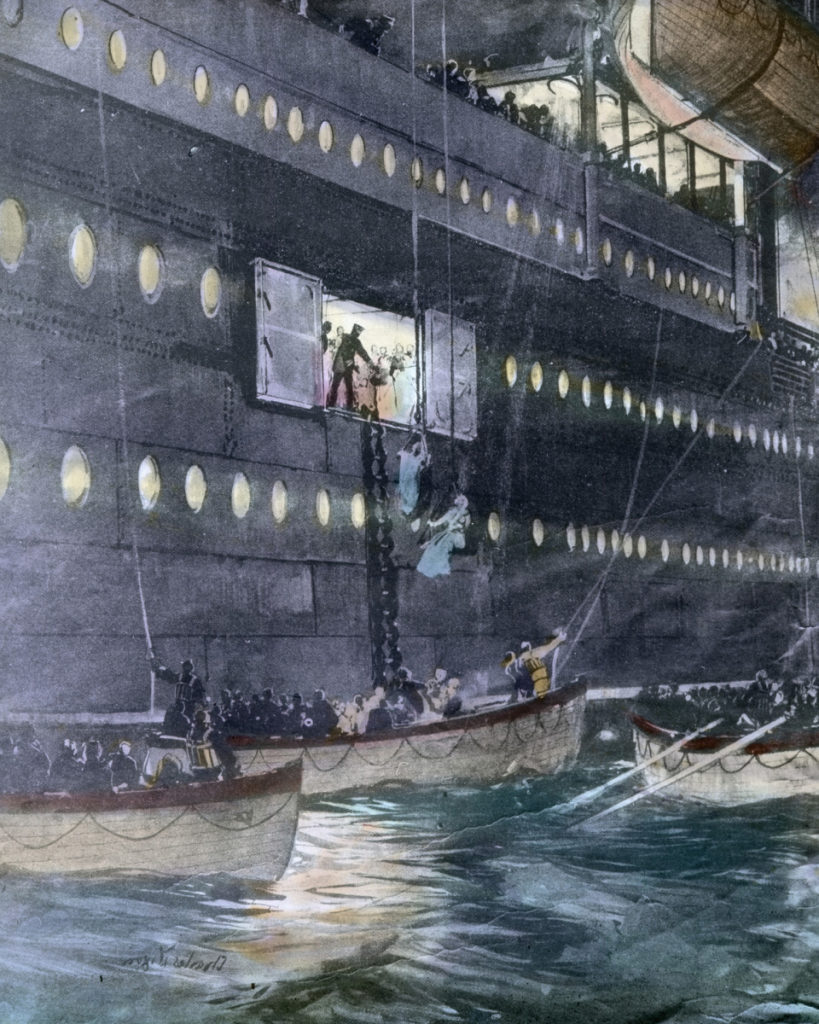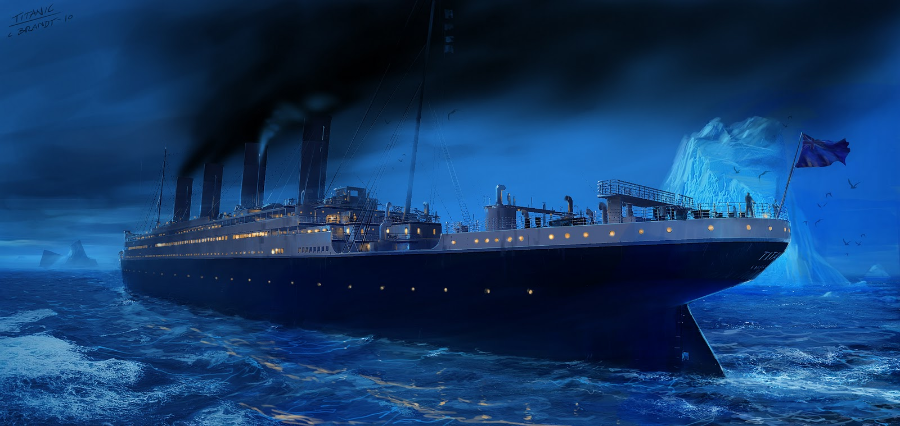Titanic-
For at least the first hour after the iceberg collision, the ship’s crew downplayed the danger. Many passengers remained optimistic.
Written content below by Greg Daugherty via History

For at least the first hour after the iceberg collision, the ship’s crew downplayed the danger. Many passengers remained optimistic.
When the RMS Titanic disappeared beneath the dark waves of the North Atlantic in the early morning hours of April 15, 1912, it left many mysteries in its wake. One of the most puzzling, even now, was the behavior of the passengers and crew. Why did so many people on board act so calmly when more than 1,500 of them would die in a matter of hours?
The short answer: No one knew, when they were first summoned to the deck around midnight on that clear, cloudless night, that the unthinkable would happen: That there were roughly half the number of lifeboats needed. Or that the ship visible in the distance would never arrive. Or that the celebrated behemoth of a ship would actually go under.

To be sure, some panic would ensue as time went on—especially as lifeboats became scarce, the ship began to perceptibly tilt, and anything not nailed down became a high-speed projectile. But while popular movies and other dramatizations of the disaster have played up isolated incidents of chaos and cowardice, most survivors told a different story.

“There was no commotion, no panic and no one seemed to be particularly frightened,” first-class passenger Eloise Smith testified in a U.S. Senate hearing on the disaster. “I had not the least suspicion of the scarcity of lifeboats, or I never should have left my husband.”
“I watched the boats on the starboard side, as they were successively filled and lowered away,” Washington Dodge, a physician, reported. “At no time during this period, was there any panic, or evidence of fear, or unusual alarm. I saw no women nor children weep, nor were there any evidences of hysteria…” Read more from History.
Follow News Without Politics for more interesting and amazing, important, and relevant U.S. and world news stories plus health, entertainment, sports, weather, food and more without media bias.
Stay informed daily. News fair and balanced, ahead of influence.




